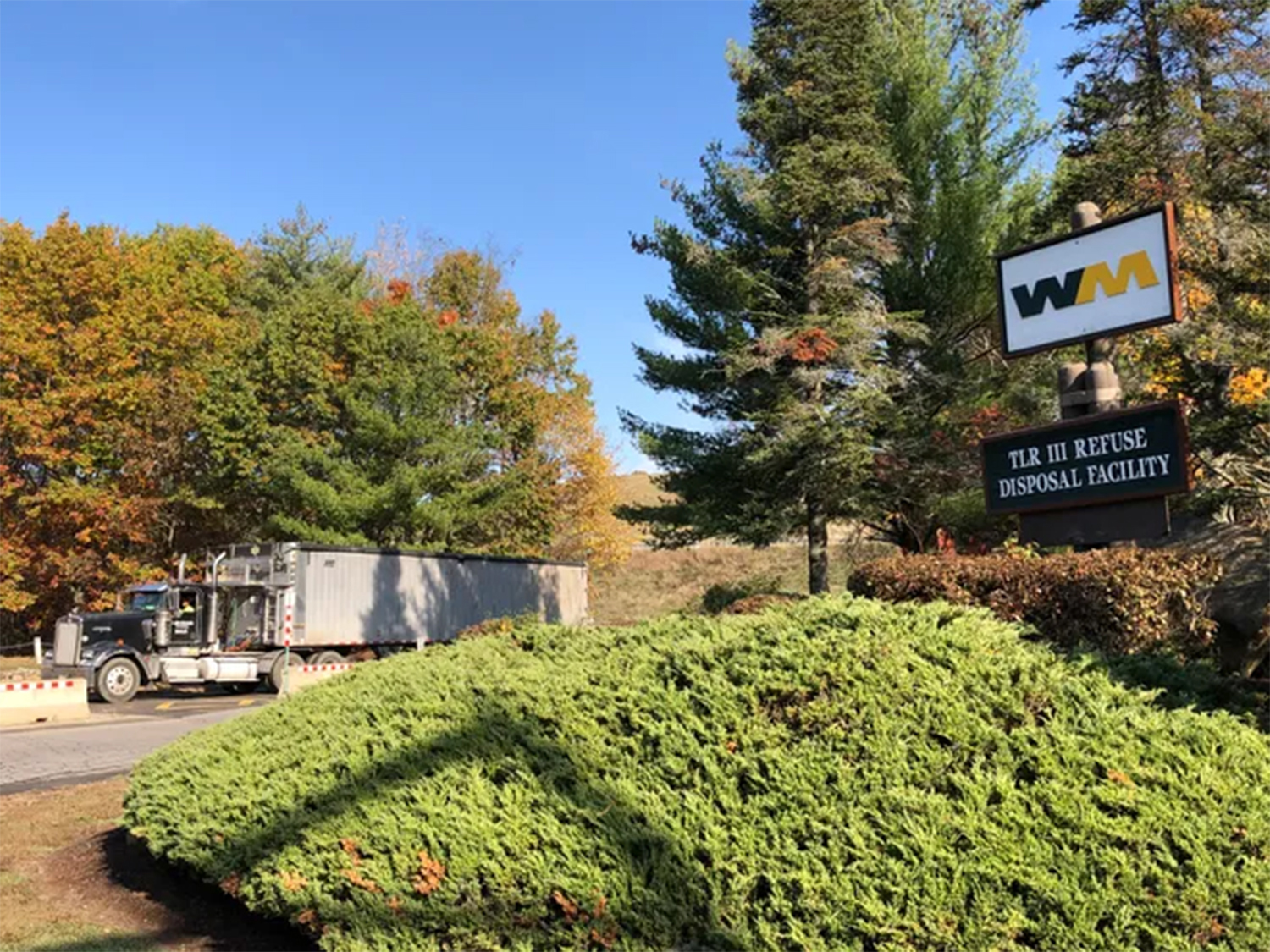Debate centers around Rochester landfill permit

The question of who best guards the public health is at the heart of a vigorous debate about the issuing of a new air emissions permit at the recently expanded Turnkey III landfill in Rochester.
At a public hearing last month in Concord, regulators from the Air Resources Division (ARD) of the state Department of Environmental Services heard and received numerous complaints about the permitting methodology, its obligations to the public, and whether the public health was being served by continuing to allow the landfill to be a major release source of nitrogen oxide, carbon dioxide, landfill gases, methane, formaldehyde (from the burning of landfill gases) and sulfur dioxide.
In a late July letter, Air Resources Division Director Craig Wright said his agency was not required to hold a public hearing to address a number of complaints but would host one anyway. He advised those requesting the meeting that the permitting process standards were set by state law and that “these general concerns are not relevant in the scope of a specific air permit proceeding.” Wright signed off on the Turnkey III federal Title V permit on Oct. 25, and it now awaits federal approval.
The 1,200-acre Turnkey property — which includes two other landfills that were capped in 1990s — is one of the largest landfill sites in New England, the final destination for more than a million tons annually of garbage and waste for the greater Seacoast NH region and from out of state. The site is managed by a subsidiary of Waste Management NH and provides jobs and a healthy tax base for the city of Rochester. It also sends trapped methane gas via pipeline to the University of New Hampshire, where the gas is processed and used for campus heat and electricity.
In 2018, the state approved a 60-acre expansion at the landfill to run through 2034. The Conservation Law Foundation sued to stop the expansion, but in early 2021 the New Hampshire Supreme Court ruled in favor of the permit and expansion began last year.
“It’s dangerous for the public and the community to continue to have this level of bad air quality and serious pollution not being investigated. The health harm to the public, business and property values surrounding the landfill is substantial,” said Cynthia Walter, a retired environmental science college professor who lives in nearby Dover. Walter said she closely reviewed the draft permit and submitted a multipage letter as a public comment pointing out multiple deficiencies in law and 21st-century environmental practices.
“In no way is public health or transparency being served in this permitting process, when it’s clear there are so many deficiencies,” she told NH Business Review. Those deficiencies include whether the permitting process is following state law; the range, methods, and type of testing and monitoring across the entire landfill boundary; and the lack of requiring best available technologies for outdated burning mechanisms and testing. Walter said a formaldehyde smartphone measuring app has been around since 2017.

Waste Management’s Turnkey Landfill in Gonic. (Photo by Kyle Stucker, Foster’s Daily Democrat)
State law and public health
Todd A. Moore, ARD air permit programs manager, reviewed and replied to questions about public comments and concerns from New Hampshire Business Review. He said about public health in particular that “public health factored into most of the air pollution control requirements that NHDES implements, including reviewing applications for air permits. The air emissions permitting system is established by environmental statutes, and one purpose of most environmental statutes is to promote public health.”
Moore is referring to the 1979 Air Pollution Control law passed by the New Hampshire Legislature, which states “the public policy of the state of New Hampshire and the purpose of this chapter to achieve and maintain a reasonable degree of purity of the air resources of the state so as to promote the public health, welfare and safety; prevent injury or detriment to human, plant and animal life, physical property and other resources; foster the comfort and convenience of the people; promote the economic and social development of this state; and to facilitate the enjoyment of the natural attractions of the state.”
An overwhelming majority of the public comments from the September hearing disagreed with Moore’s assessment that public health considerations are front and center.
Anna Wainwright of next-door Somersworth, a mother of two young children, wrote that “in recent months, the smell from the Turnkey landfill has been noticeable and at times oppressive. It has begun to worry me, and make me wonder if the air my children breathe is not safe as a result ... Why is the stench not being controlled? What steps are being taken to fix this problem and protect our young children, as well as their parents and the elderly and vulnerable?” Moore said “nuisance reports” about odors from the landfill have been directed to the Waste Management Division of DES.
Not all the public comments were critical. Mayor Robert Carrier of Dover said city officials were “on board” in support of permit approval. Another local resident said he lived “100 feet” from the landfill and “smell absolutely nothing except on rare occasions, certainly not enough to make a huge deal about it.”
A waste industry ‘rubber stamp’?
John Tuthill, a former state representative from Acworth who was one of those calling for a public hearing, told NH Business Review that he was concerned that “DES is determined not to be proactive; just do the minimum required and check off the required boxes” for approval.
He said it was same lack of bureaucratic atrophy and lax oversight that led to groundwater PFAS contamination crisis from the Saint-Gobain Performance Plastics plant in Merrimack. A consent decree signed in 2018 with the state of New Hampshire forced the company to provide clean drinking water for a 65-square-mile area. In August, ARD approved a new air permit that allows the company to expand operations and legally emit PFAS, which are toxic to human and animals and are known as “forever chemicals” because they take so long to break down.
When asked about the likely cumulative air pollution increase from the influx of vehicles, due to the expansion of capacity at Turnkey, Moore said, “DES is not aware of any ambient air-quality monitoring being performed to monitor vehicle emissions from the Turnkey Landfill.” He further said, “Monitoring air emissions from vehicles is beyond the scope of DES’s air-permitting program.”
State Rep. Tony Caplan (D-Henniker), a member of the House science, technology and energy committee, said, “If the DES believes it has no leeway than to rubber stamp these facilities to continue their polluting business without demonstrating the harm from cumulative impacts, then it’s clear that the public interest is not being served.”
In addition to regional controversy surrounding the expansion of and air permitting process for Turnkey III, the site has also attracted the attention of climate researchers. According to a November 2022 global survey, climatetrace.org placed the Turnkey III landfill as the 8,349th greatest source of greenhouse gases in the world (out of 80,188 physical assets monitored), even greater than Manchester-Boston Regional Airport (which ranked 11,344).